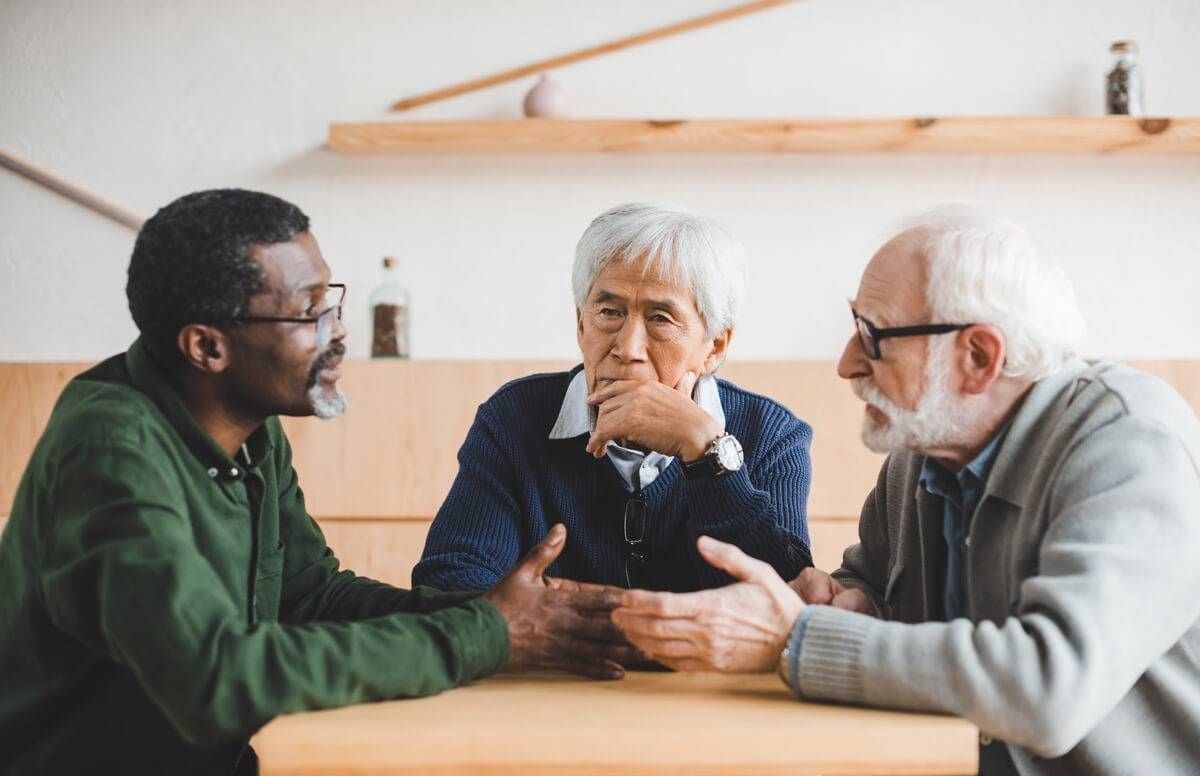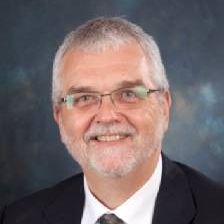Civil Discourse in an Era of Polarization
Ways to enter into conversation and respectfully seek common ground
People are unhappy; we live in a time of fragmentation and polarization. Our society is divided by rampant tribalism and fears of “the other,” marked by a distrust and anger of how groups are different, with the distress centering on politics. The American Psychological Association, in a 2017 study on stress in America, found that nearly 60 percent of U.S. citizens felt stressed because of the current social divisiveness.

Depending on the news channels we watch, blogs we read, Twitter and Facebook feeds, and houses of worship we attend, most of us are consuming polarized information in communities that neither invite nor encourage thoughtful examinations of where we stand with our beliefs. Progressively, we are closing our hearts and minds to critical thinking and the embrace of cultural difference.
According to Charles Camosy, associate professor of Christian ethics at Fordham University, “We play by mean-spirited rules and are self-segregating, online and in person. We are less willing to live in community with each other. We are not cultivating a social climate encouraging patient listening nor responding to others’ varying values and thoughts with any sense of curiosity and interest. These issues of identity are focused on how people are different rather than on commonalities.”
Loss of Civil Discourse and Increase in Polarization
Today, there is such negativity in social discourse that meaningful conversations are difficult for people of differing opinions. How many times do we think or say, “I’m right and everything else is fake news?”
Percy Johnson, a Disciples of Christ minister and professor at the Interdenominational Theological Center in Atlanta, says, “We are in a frightful state of affairs based on greed, avarice and a fear for a lack of basic resources. This sense of ‘not enough to go around’ is promoting the re-emergence of top-tier exploitation and selfishness.”
Johnson continues, saying, “Martin Luther King talked about the inability to hear the cries of other human beings. Out of our fear, we ignore the struggles and challenges of humanity. Because people are frightened by their perception of limited resource, we grab what we can to fill the empty spaces in our own lives.”
This polarization is particularly powerful in these strange days. As Camosy says, “This epoch of time seems to be a period of deconstruction. There are fewer and fewer opportunities for our views to be thoughtfully challenged. Now, when we are directly asked about our values, beliefs or opinions, it is difficult to come up with anything other than a polarizing response.”
Can Things Happen Differently?
As pessimistic as our community seems, the possibility of redemption does emerge. Proceedings of the American Psychological Association’s National Conversation on Civility, held in September 2018, noted “…However dire things get, as things get worse and worse, more people start working on them, and humans are innovative.”
Johnson echoes this sentiment, saying, “We have to return to fearless dialogue and actively look for difference from ourselves, starting from the other’s socioeconomic status, race, sexual orientation, age and political affiliations. If we approach ‘the other’ wanting to know about personal differences, we can enter their sacred spaces and places, their fears and uncertainties.”
He says, though, “Fearless dialogue is hard. It takes work to disclose human experience and to talk about a life journey. Empathic listening takes energy, and finding respectful common ground is challenging at best.”
For years, social psychologists have taught that respect is acquired through empathy, when one can see and hear another’s human fallibility and frailty. This communication transaction involves understanding the other’s goals and preferences in the context of community norms, and through recognition that appreciation for personal difference increases the welfare of both.
As social scientist Brené Brown says in her 2017 book, Braving the Wilderness, “Belonging to each other cannot be denied, but it can be lost.”
The Psychological Crisis of Disconnection
In this contemporary time, people are hiding in ideological bunkers with eroding respect, civility and common decency. This state of being seeds fertile ground for the creation of a troubling psychological loop. When we hide from the world, we lose our authenticity, which fuels loneliness. The more isolated we become, the greater the rise of fear that we will not have enough. This fear of scarcity is then amplified by an inability to tolerate discomfort, which in turn colors our sense of self-renewal during changing times.
Since life relies on interdependence with others, the collective community is necessary to reach personal outcomes. In the absence of such a collective, individuals face disorienting dilemmas without the ability to make critical assessments and thoughtful examination of beliefs and assumptions. We fight for our position, even when it becomes strident and makes little sense.
5 Practices for Moving Toward Civil Discourse
At Fordham University, Camosy studies communication transactions and researches the application of transformative learning into everyday life. He offers five practices for moving beyond the polarization which currently dominates our public discourse:
1. Speak from humility, recognizing we are finite, flawed beings and are prone to making serious mistakes. Entering into conversations with this belief in the forefront of our mind enhances personal comfort when someone challenges our point of view. Room is allowed for changing our mind when the argument is shown to be problematic.
2. Find a solid connection in partnership with those in the conversation. This involves active listening, looking for something to learn, and if possible, getting to know substantive personal data about everyone in the discussion. Give all in the conversation the courtesy of responding to the actual idea and topic discussed, rather than attributing “secret” motivation or reducing ideas to gender, race, level of privilege or sexual orientation.
3. Avoid binary thinking. All issues of this day are too complex to fit into simplistic black-or-white categories. Dropping ideas into “either/or” thinking immediately defines one against "the other side," which limits serious and open engagement.
4. Use language that engages and draws the other into a fruitful engagement of ideas. This requires monitoring and self-censoring the use of dismissive words. Be curious.
5. Lead the conversation with a convincing case for the view you hold, and be prepared to find similar views. Encourage open and coherent dialogue about the best plan for reaching common goals.
The Higher Ground
Camosy says these strategies require a commitment to being in relationship and may lead to a short-term loss of power. He suggests asking yourself, “Is my position worth fighting for without engagement? How can I find real contact with those who disagree with me?”
Johnson agrees, saying, “Find a courageous voice. These days, it is easier to argue than it is to find common ground. But, in the end, we all lose when we are unable to mobilize our best selves.”


